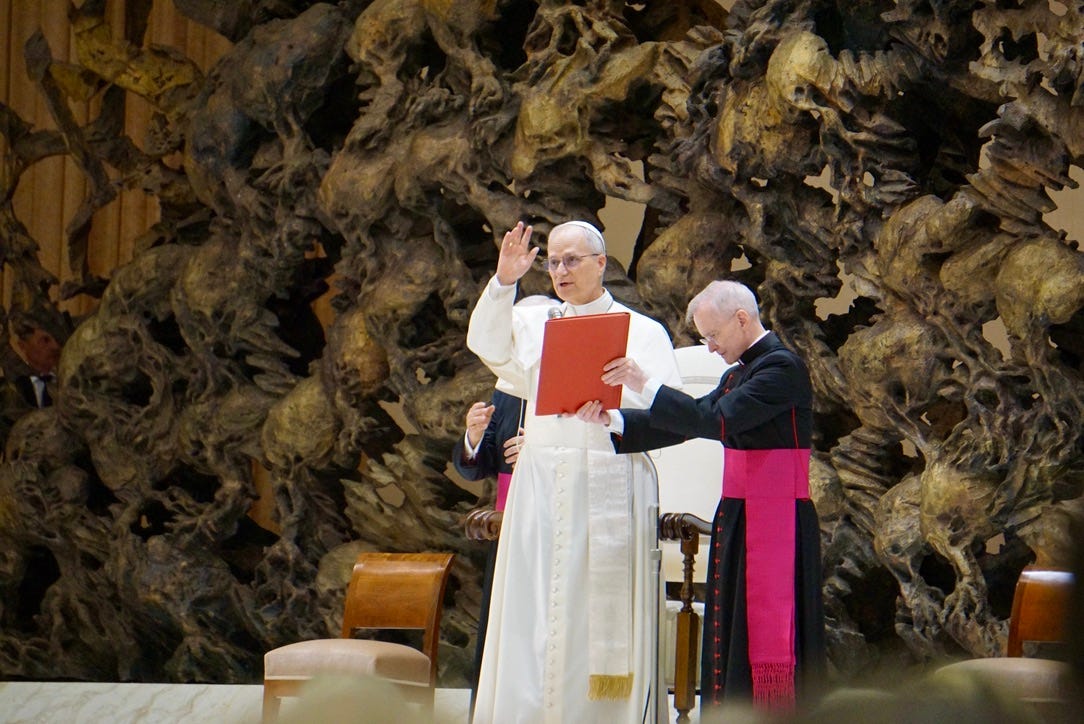Leo's Dilexi te warns of ‘unhealthy society,’ urges Church to renew care for poor
‘In this call to recognize him in the poor and the suffering, we see revealed the very heart of Christ.’
VATICAN CITY (PerMariam) — Pope Leo’s first Apostolic Exhortation Dilexi Te was released today, emphasizing the Catholic Church’s “care for the poor and with the poor” as a “a central part of her life.”
He points to the intimate link between love of God and love of neighbor, quoting – as would be expected – from the Gospel passage: “Truly I tell you, just as you did it to one of the least of these my brethren, you did it to me.” (Matt 25:40)
Condemning the “throwaway culture” – in a passage drawn from Pope Francis’ Laudato Si’ – and rejecting the notion that society has reduced the amount of poverty, Leo sought to highlight the duty of caring for the poor as contained within the Gospels.
Touching somewhat briefly on the topic of migrants also – a hot topic under Pope Francis – Leo somewhat echoed his predecessor in saying that migrants represent Christ knocking on the door.
As noted by Leo, the Apostolic Exhortation Dilexi Te takes its name from Revelations 3:9, using the very end of the scriptural passage “they shall know that I have loved thee.”
Leo’s document is not entirely his own in the sense that it builds upon a text already prepared for Pope Francis. Indeed the link to the Francis pontificate is clear from the very title “Dilexi te,” which clearly links back to Francis’ 2024 encyclical Dilexit nos.
Acknowledging this, Leo wrote that in his last months Francis was preparing:
an Apostolic Exhortation on the Church’s care for the poor, to which he gave the title Dilexi Te, as if Christ speaks those words to each of them, saying: “You have but little power,” yet “I have loved you” (Rev 3:9). I am happy to make this document my own — adding some reflections — and to issue it at the beginning of my own pontificate, since I share the desire of my beloved predecessor that all Christians come to appreciate the close connection between Christ’s love and his summons to care for the poor.”
Leo has indeed made this theme of his predecessor his own, noting that “I too consider it essential to insist on this path to holiness, for ‘in this call to recognize him in the poor and the suffering, we see revealed the very heart of Christ, his deepest feelings and choices, which every saint seeks to imitate.’”
Quoting from Evangelii Gaudium, Leo also urged that Catholics “‘let ourselves be evangelized’ by the poor and acknowledge ‘the mysterious wisdom which God wishes to share with us through them.’”
“Caring for the poor is part of the Church’s great Tradition,” he concluded, “a beacon as it were of evangelical light to illumine the hearts and guide the decisions of Christians in every age.”
Divided into five chapters and 121 numbered paragraphs, the Exhortation is somewhat shorter than some of Pope Francis’ more prominent texts.
Keep reading with a 7-day free trial
Subscribe to Per Mariam: Mater Dolorosa to keep reading this post and get 7 days of free access to the full post archives.



